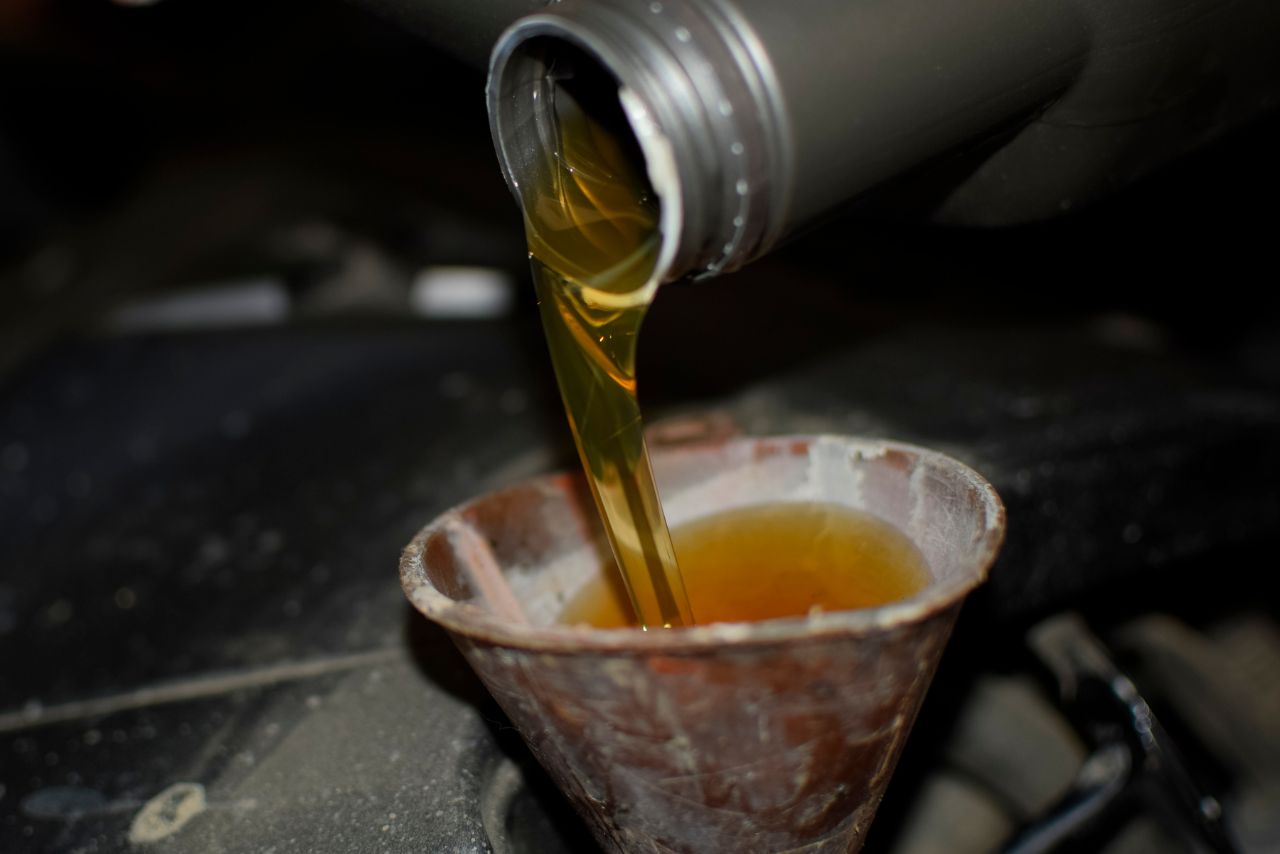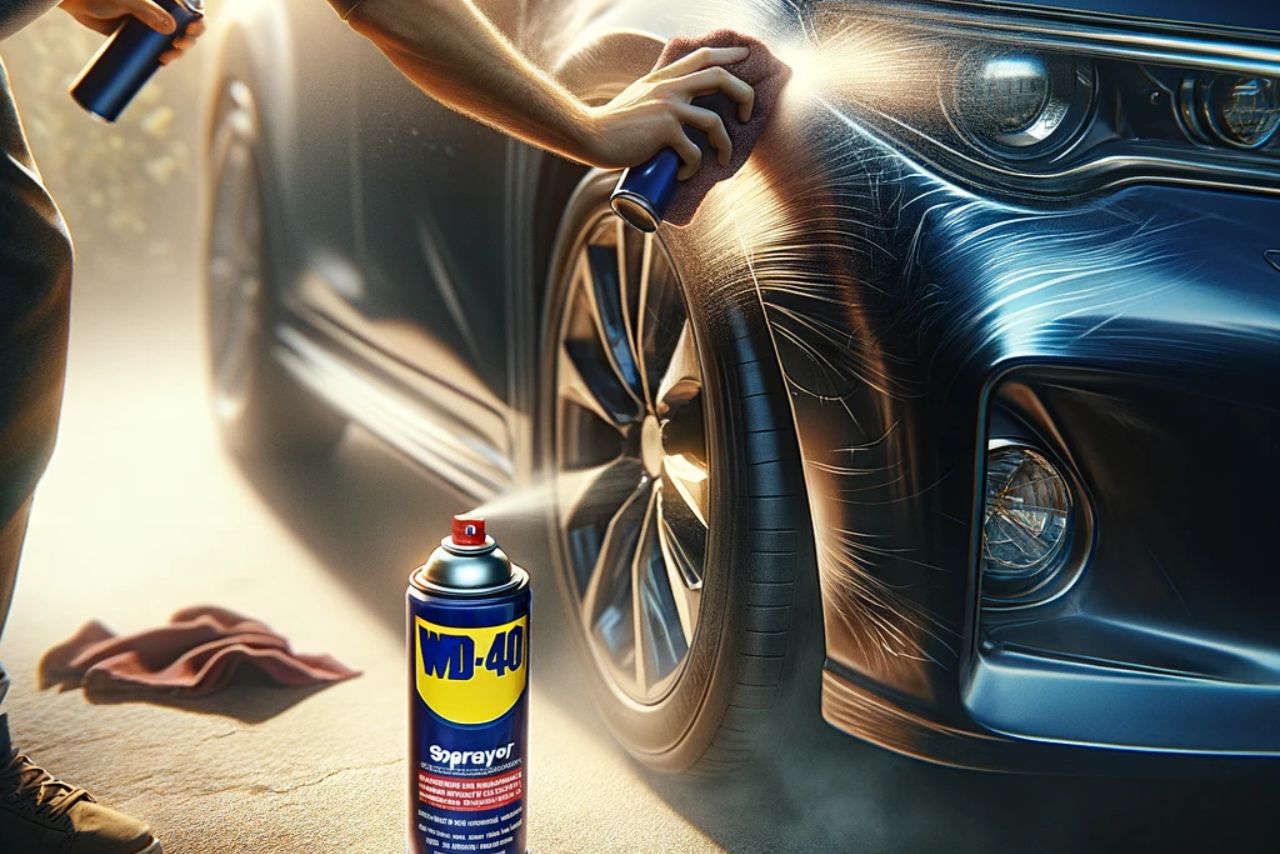As the owner of a high mileage vehicle, you’re well aware of the importance of maintaining your engine’s performance. One factor that can greatly impact your engine’s longevity is the viscosity of the oil you use.
Viscosity is a measure of a fluid’s resistance to flow, and it plays a crucial role in protecting your engine’s moving parts from wear and tear.
In this article, we’ll explore Is Higher Viscosity Oil Better For High Mileage? the pros and cons of using higher viscosity oil in high mileage vehicles, as well as how to determine the right viscosity for your specific engine.
So, let’s dive in and take a closer look at this important topic.
Using higher viscosity oil in high mileage engines can have some benefits. As engines age and components wear, they may develop gaps and looser tolerances.
Thicker or higher viscosity oil can help fill these gaps and provide better lubrication, reducing friction and preventing further wear. It can also help reduce oil consumption and leakage in older engines.
Table of contents
What Is Viscosity and How Does It Affect Engine Performance?
Viscosity, or the thickness of oil, plays a crucial role in keeping an engine running smoothly and efficiently.
It refers to the oil’s resistance to flow, which is affected by factors like temperature and pressure. The higher the viscosity, the more resistance the oil has to flow.
This is why oil with higher viscosity is often recommended for high-mileage engines, especially those with wear and tear.
Viscosity explained: the thickness of oil affects how well it can lubricate the engine’s moving parts. Thicker oils tend to provide better protection against wear and tear, especially in engines with high mileage.
However, higher viscosity oils also require more energy to circulate, which can result in reduced fuel economy.
Therefore, it’s important to choose the right viscosity oil for your engine, taking into account factors like the climate, driving conditions, and the engine’s age and condition.
The Benefits of Using Higher Viscosity Oil for High Mileage Vehicles:
- Synthetic blend 15W-40 diesel engine oil with Triple Protection Plus technology protects against wear, deposits, and oil breakdown
- Ideal for on-highway fleets, construction, and agricultural machinery, and diesel pickup trucks — including high-power vehicles that require resistance to heat and stress
- Improves low-temperature flow (compared to conventional 15W-40 oils)
- Helps control engine deposits for reliability at extended oil drain intervals (always follow the OEM recommended oil drain interval)
- Controls engine wear 37 percent better than the maximum wear requirements in API CK-4 engine wear tests
- Improved oxidation performance for increased resistance to oil breakdown under high temperatures compared to the previous formulation
- Single 1-gallon bottle with ergonomic design for easy handling and pouring
If you’re looking to give your trusty old ride a little extra TLC, there’s a type of engine lubricant that could do the trick.
Higher viscosity oil is a great option for high mileage vehicles that need a little extra protection against engine wear.
Here are three benefits of using higher viscosity oil for your high mileage car:
- Improved fuel efficiency: Higher viscosity oil has better lubricating properties, which means your engine doesn’t have to work as hard to run smoothly. This can lead to better fuel efficiency and savings at the pump.
- Reduced engine wear: Over time, engines can develop wear and tear that leads to decreased performance and even failure. Higher viscosity oil can help reduce engine wear by providing better protection against friction and heat.
- Enhanced engine performance: High mileage vehicles often experience decreased engine performance due to worn out components. Higher viscosity oil can help restore performance by reducing friction and wear on engine parts.
Overall, using higher viscosity oil for your high mileage vehicle is a smart choice if you want to improve fuel efficiency, reduce engine wear, and enhance engine performance.
It’s important to consult with a professional mechanic to determine the best type and viscosity of oil for your specific vehicle.
The Downsides of Using Higher Viscosity Oil:
You may have heard about the benefits of using higher viscosity oil for your high mileage vehicle, but there’s something important you should know about it.
While it’s true that higher viscosity oil can provide better protection to your engine, it also comes with some downsides that you need to consider.
One potential issue with using higher viscosity oil is that it can cause engine damage. This is because the thicker oil can create more resistance in the engine, which can lead to increased wear and tear on the engine components.
Additionally, higher viscosity oil can also decrease fuel efficiency, as the engine has to work harder to move the thicker oil through the system.
So, while higher viscosity oil may seem like a good choice for high mileage vehicles, it’s important to weigh the potential benefits against the potential drawbacks before making a decision.
Determining the Right Viscosity for Your High Mileage Vehicle:

Figuring out the perfect oil thickness for your high mileage vehicle can be a bit tricky, but it’s worth taking the time to get it right.
Choosing the right viscosity can make a significant difference in the performance of your engine.
The viscosity of your oil determines how easily it can flow through your engine’s parts, including the bearings, pistons, and valves.
Typically, high mileage vehicles require thicker oil to maintain proper lubrication and prevent engine wear.
When selecting the right oil viscosity for your high mileage vehicle, there are a few factors to consider.
- Firstly, you’ll need to determine the manufacturer’s recommended viscosity range for your vehicle. This information can usually be found in your owner’s manual or by contacting the dealership.
- Additionally, you may want to consider using additives or synthetic blends to enhance the oil’s performance.
- These can help improve the oil’s viscosity stability and reduce engine deposits, which can lead to better engine performance and longevity.
Ultimately, choosing the right oil viscosity for your high mileage vehicle requires careful consideration, but it’s well worth the effort to keep your engine running smoothly.
The importance of regular oil changes:
Regularly changing your vehicle’s oil is crucial to maintaining its performance and preventing potential damage to your engine.
The importance of oil changes can’t be emphasized enough, especially if you own a high mileage vehicle.
Neglecting to change your oil frequently enough can lead to a multitude of problems that can seriously affect your car’s performance.
To give you a better idea of what could happen if you neglect oil changes, here are some signs and consequences to look out for:
-
Dirty oil: If your oil is dirty, it can clog your engine and reduce its ability to lubricate, which can cause excessive wear and tear.
-
Engine noise: If you hear knocking or ticking noises coming from your engine, it could be a sign that your oil is dirty or low.
-
Reduced fuel economy: Dirty oil can also cause your engine to work harder than it needs to, which can result in poor fuel economy.
-
Engine failure: If you don’t change your oil frequently enough, your engine can fail due to excessive wear and tear. This can be a costly repair, and in some cases, it may be more cost-effective to replace the engine altogether.
Changing your oil at the recommended frequency is crucial to maintaining your vehicle’s performance and avoiding potential damage to your engine.
Using high-quality oil and filters:
Now that you understand the importance of regular oil changes, it’s time to focus on the quality of oil and filters you use.
Using high-quality oil and filters can make a big difference in the performance and longevity of your high mileage engine.
Oil quality is important because it affects the viscosity and ability of the oil to protect your engine parts.
Higher viscosity oil may seem like a good choice for high mileage engines, but it’s not always the case. The type of oil recommended for your engine by the manufacturer is the best choice.
It’s important to note that using oil with a higher viscosity than recommended can cause a decrease in fuel efficiency and even damage your engine.
Filter effectiveness is also important because it prevents contaminants from entering your engine. Using a high-quality filter can ensure that your engine stays clean and free from debris.
By using the proper oil and filter, you can help prolong the life of your high mileage engine.
Other maintenance tips for high mileage vehicles:
If you want to keep your older car on the road, it’s important to give it some extra TLC with a few simple tricks up your sleeve.
One of the most important things you can do is to keep up with regular maintenance.
This includes taking your car to a trusted mechanic who can give it a thorough once-over. In addition to regular oil changes and filter replacements, there are a few other things you should be doing to keep your high mileage vehicle running smoothly.
- First, make sure you’re keeping up with tire maintenance. This means checking your tire pressure regularly and making sure your tires are properly aligned. This can help extend the life of your tires and improve your car’s overall performance.
- Second, be sure to check and replace any worn out parts. This could include anything from worn brake pads to a faulty water pump.
- By catching these issues early and addressing them promptly, you can avoid more costly repairs down the line.
- Finally, don’t overlook the importance of regular tune-ups and inspections. Your mechanic can help you identify any potential problems before they become major issues, helping you keep your car on the road for years to come.
Common misconceptions about higher viscosity oil:
Don’t believe the misconception that thicker oil is always better for your car – it may not be the right choice for your driving habits and could actually cause damage.
While higher viscosity oil may be beneficial for high mileage vehicles with worn out engines, it’s important to consider the potential risks before making the switch.
One common misconception is that thicker oil will provide better protection for your engine.
However, using a higher viscosity oil than recommended by the manufacturer can actually cause excessive wear and tear on engine components, including the bearings and oil pump.
This can lead to decreased engine efficiency and even engine failure. Additionally, using thicker oil can also decrease fuel efficiency, leading to higher costs at the pump.
As with any maintenance decision, it’s important to weigh the potential benefits against the potential risks and consult with a trusted mechanic before making any changes.
| Misconception | Potential Risk |
|---|---|
| Thicker oil provides better engine protection | Can cause excessive wear and tear on engine components, leading to decreased efficiency and even engine failure |
| Higher viscosity oil is always better for high mileage vehicles | May not be the right choice for your driving habits and can decrease fuel efficiency |
| Changing to a higher viscosity oil will fix engine problems | Can actually worsen existing issues and cause further damage |
| All oils are the same, so it doesn’t matter which one you use | Different oil types and viscosities are formulated for specific engine types and driving conditions, using the wrong one can cause damage |
By understanding and debunking these common misconceptions, you can make informed decisions about the maintenance of your high mileage vehicle.
Remember to always consult with a trusted mechanic and follow the manufacturer’s recommended oil viscosity for optimal engine performance and longevity.
The environmental impact of using higher viscosity oil:
Consider the impact on the environment when you opt for a thicker, more viscous oil for your vehicle, as it can lead to increased emissions and harm to the planet.
- Using higher viscosity oil for high mileage vehicles may seem like a good idea, but it’s important to consider the environmental concerns that come with it.
- The heavier oil can increase fuel consumption, which leads to higher carbon dioxide emissions. This is because thicker oils create more resistance in the engine, causing the car to work harder and burn more fuel.
- To combat these environmental concerns, sustainability practices should be implemented. One such practice is to use synthetic oils that have lower viscosities.
- Synthetic oils are designed to have a consistent viscosity, even in extreme temperatures, which means that they can help reduce fuel consumption and emissions. Additionally, they have a longer lifespan than conventional oils, which means less oil is needed overall.
By implementing these sustainability practices, we can reduce the negative impact that using higher viscosity oil can have on the environment.
Frequently Asked Questions:
Can I use higher viscosity oil in a new car?
Using a higher viscosity oil in a new car can have pros and cons. It may provide better protection but can also cause increased wear and potentially reduce fuel efficiency. Long term effects depend on the specific oil and engine.
Is it true that higher viscosity oil can improve fuel efficiency?
You may have heard that higher viscosity oil can improve fuel efficiency, but the truth is more complicated. Benefits include better protection against wear and tear, but drawbacks include potential engine damage. It’s important to consult with a professional before making any changes to your oil viscosity.
Will using higher viscosity oil cause any damage to my engine?
Using higher viscosity oil may cause compatibility concerns and potentially damage your engine. While it may have some pros for high mileage vehicles, it’s important to consult your vehicle manual and a professional to ensure compatibility and avoid potential harm.
Are there any additives that can enhance the performance of higher viscosity oil?
Oil additives can enhance the performance of higher viscosity oil by improving its lubrication and cleaning properties. They can also reduce friction and wear, ultimately increasing engine longevity. However, it’s important to choose the right additive for your specific needs.
Can I switch back to lower viscosity oil after using higher viscosity oil for a while?
You can switch back to lower viscosity oil after using higher viscosity oil for a while, but there are pros and cons to consider. Long term effects may include reduced engine protection and increased oil consumption. Consult with a mechanic before making the switch.
Conclusion and final thoughts 💭
Using higher viscosity oil for high mileage vehicles can provide numerous benefits, including improved engine performance and reduced oil consumption.
However, it’s important to note that there are also downsides to using higher viscosity oil, such as increased wear on engine components and reduced fuel efficiency.
To determine the right viscosity for your high mileage vehicle, consult your owner’s manual and consider factors such as driving conditions and climate. Additionally, make sure to regularly change your oil and use high-quality oil and filters.
Other maintenance tips, such as checking tire pressure and getting regular tune-ups, can also help prolong the life of your high mileage vehicle.
For example, a study conducted by AAA found that using higher viscosity oil in a high mileage vehicle can improve fuel efficiency by up to 2.3%.
This can result in significant savings over time, especially for those who frequently drive long distances.
However, it’s important to note that the benefits of using higher viscosity oil may vary depending on the specific vehicle and driving conditions.
Latest Posts:
- Can WD-40 Remove Scratches on Cars? (Hint: Yes, but…)
- Can You Use a Drill to Polish Your Car? (We Tried it Out!)
- Should You Cover Car Scratches With Stickers? (REVEALED!)
- Buick Service Stabilitrak: (Causes & 100% Guaranteed Fix!)
- Common Holden Trax Problems (Causes & 100% Proven Fixes!)
- Jeep Commander Transmission Over Temp: (Guaranteed Fix!)











Leave a Reply